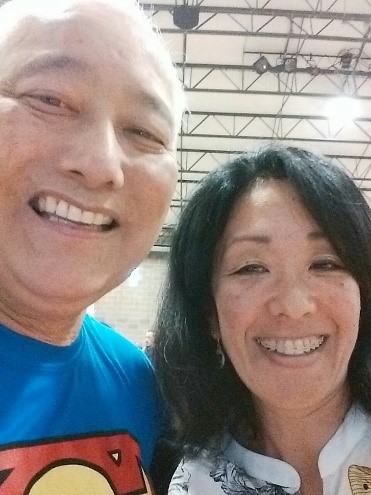The most important decision I made right out of college was joining the board of the Seattle Japanese American Citizens League (JACL), one of the oldest civil rights organizations in the nation. JACL was the training ground for a young, 23 year old me to hone my leadership skills. Through JACL, I got to meet some of the most influential, and revered Nisei (2nd generation Japanese Americans) in my community, like Cherry Kinoshita, Ken Nakano, and Chuck Kato. They not only survived the incarceration of Japanese Americans during WWII, they fought for reparation against all odds, and won.
I was lucky to have known and worked along-side such trailblazing Nisei. Before they won the fight for reparations, they had to convince their own community, which had yet to fully reckon with the shame of being incarcerated, distrusted by their own government, and viewed as the enemy. They were doing this at a time when it was taboo for most Issei (first generation Japanese) and Nisei to even discuss the incarceration or acknowledge the pain and loss the governments forced removal and imprisonment caused to families and the community.
JACL is a respected and active organization, it was and is a safe space for young (and experienced) community activists regardless of their heritage. My first role was as JACL Scholarship Chair. Later, I took over the JACL community directory project. When we had an opportunity to apply for education grants to tell the story of incarceration to the nation, I wrote a grant for JACL to sponsor a public art project in the Pike Place Market to tell the stories of the Japanese American farmers, who composed ⅔ of the farmers there prior to World War II. (My mother’s family ran a truck farm in Bellevue and sold produce in the Market before the War.)
It was at JACL that I met Alan Sugiyama, one of my most influential mentors. Al saw something in me and helped me get my first job in social services, as the Registration and Recruitment Specialist at Seattle Vocational Institute. When I asked him what I could do to repay him for his help, he said “just help someone else.” I hope I have done enough to encourage and help others develop their leadership.

I was lucky to get my start doing justice work with JACL, a BIPOC-founded, BIPOC-led, and BIPOC-serving organization. I could not have realized my leadership potential anywhere else.
Neighborhood House is only 20 years older than JACL, and was also founded by a marginalized community, Jewish women immigrants. One of our “sheroes” is Shirley Wilcox, our first non-Jewish board president who kept Neighborhood House going as a community resource and forged a partnership with Seattle Housing Authority that continues to this day. This summer, we will be re-christening our Rainier Vista location to be the Wilcox Center in honor of Shirley and her husband Louis’ leadership and involvement during a pivotal time of Neighborhood House’s history. More information about this event will be coming soon.
Neighborhood House is BIPOC-led, BIPOC-serving, and committed to becoming an anti-racist organization. We are creating a safe space where young and experienced activists feel safe finding and expressing their leadership. Some ways we are doing that is through our internal antiracism committees, eight different affinity groups, promoting from within, and organizing our staff and community around justice issues like equitable wages, public safety, housing, and access to resources.
On June 6, I will be joining three women of color leading change, Shalimar Gonzalez (CEO of Solid Ground), Andrea Caupain Sanderson (CEO of Byrd Barr Place), and Estela Ortega (Executive Director of El Centro de la Raza), in a conversation with TreaAnna Holiday of Converge Media about leadership, race, Community Action, and dismantling racism and other oppressions that are root causes of poverty.
Women of Color Leading Change is part of Solid Ground’s Social Justice Salon series of in-person community conversations that bring together participants, partners, and leaders to discuss innovative solutions to our challenges. The event is free to Neighborhood House staff, community members and youth – $10 for those that can pay.
